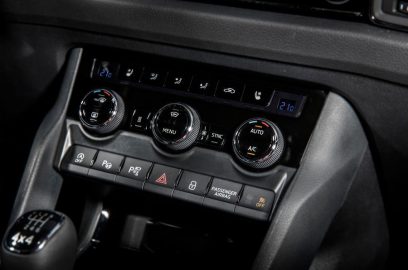www.uppermichiganssource.com After Ishpeming’s Labor Day parade, union members and community members gathered at the Lake Bancroft Park for a picnic, family entertainment and a beer tent, manned by Senator Scott Dianda and two Democrat candidates. To learn more about donating to the ease efforts, click here.
24/7 Wall St.
How to Avoid Buying a Flood-Damaged Car
Flood waters driven by tropical storm Harvey are expected to have bruised as many as half a million cars in the Houston area. A majority of these cars are headed for the scrap yard, but some — most likely many more than a few — will be cleaned up and resold. And buyers may not know that they’re laying out cash for vehicles that have been totaled and may now be uninsurable.
As vehicle owners make claims to their insurance companies, many of the vehicles that were flooded will be proclaimed a total loss. When that happens, the vehicle title will indicate that the vehicle is a “salvage” vehicle. Salvage designations vary by state, and you may see other words like “flood,” “junk” or “lemon-law buyback” to indicate that the car has been announced a total or near-total loss by an insurance company.
But if the vehicle is taken out of state and retitled in another state, the fresh title may very well not indicate the salvage status. Following 2005’s Hurricane Katrina, thousands of rebuilt cars that had been announced total losses were sold to buyers who did not know they were buying salvage vehicles.
The U.S. Federal Trade Commission (FTC) has published a list of steps buyers can take to help determine if the vehicle they plan to buy has been bruised by flooding:
- Look for water stains, mildew, sand or silt under the carpet, floor mats, and dashboard, and in the wheel well where the spare is stored. Look for fogging inwards the headlights and taillights.
- Do a smell test. A intense aroma of cleaners and disinfectants is a sign that someone’s attempting to mask a mold or odor problem.
- Get a vehicle history report. Check a trusted database service. There are reliable services that charge a petite fee. The National Insurance Crime Bureau’s (NICB) free database lists flood harm and other information.
- Understand the difference inbetween a “salvage title” and a “flood title.” A “salvage title” means the car was proclaimed a total loss by an insurance company because of a serious accident or some other problems. A “flood title” means the car has harm from sitting in water deep enough to pack the engine compartment. The title status is part of a vehicle history report. Either way, every used car needs an inspection and records before you buy, but with salvage- and flood-titled cars, you need to be extra careful.
- Have your mechanic inspect the car’s mechanical and electrical components, and systems that contain fluids, for water contamination.
As long as a salvage or flood vehicle’s title clearly indicates its status and the vehicle checks out according to this list, buyers may want to go ahead and buy it. But very first, it may be wise to check with your insurance company and lender, if you have one.
A salvage-title car is worth about half of its Kelley Blue Book value, according to Consumers Report. If you need a loan to buy the vehicle and if you think your insurance company will insure the car for what you expect to pay for it, you could be very wrong.
How Your Credit Score Affects Your Auto Insurance Premiums
Most insurance companies are not impatient to write comprehensive and collision coverage on salvage-titled vehicles because the insurer can’t be sure of the vehicle’s value or how accomplish the repairs are. Harm to the vehicle’s electrical system, for example, may not surface for months and can be enormously hard to track down and expensive to repair.
Getting an auto loan without utter collision and comprehensive coverage on the vehicle is essentially unlikely. That means you have to pay cash, and the value to you if you attempt to resell the vehicle, expect to get around 30% of the Kelley Blue Book value.
Think of it this way: if you buy a salvage vehicle, be ready to drive it until the wheels fall off with minimum insurance coverage. It is destined to become your fresh BFF.
How to Avoid Buying a Flood-Damaged Car, twenty four
24/7 Wall St.
How to Avoid Buying a Flood-Damaged Car
Flood waters driven by tropical storm Harvey are expected to have bruised as many as half a million cars in the Houston area. A majority of these cars are headed for the scrap yard, but some — most likely many more than a few — will be cleaned up and resold. And buyers may not know that they’re laying out cash for vehicles that have been totaled and may now be uninsurable.
As vehicle owners make claims to their insurance companies, many of the vehicles that were flooded will be announced a total loss. When that happens, the vehicle title will indicate that the vehicle is a “salvage” vehicle. Salvage designations vary by state, and you may see other words like “flood,” “junk” or “lemon-law buyback” to indicate that the car has been proclaimed a total or near-total loss by an insurance company.
But if the vehicle is taken out of state and retitled in another state, the fresh title may very well not indicate the salvage status. Following 2005’s Hurricane Katrina, thousands of rebuilt cars that had been proclaimed total losses were sold to buyers who did not know they were buying salvage vehicles.
The U.S. Federal Trade Commission (FTC) has published a list of steps buyers can take to help determine if the vehicle they plan to buy has been bruised by flooding:
- Look for water stains, mildew, sand or silt under the carpet, floor mats, and dashboard, and in the wheel well where the spare is stored. Look for fogging inwards the headlights and taillights.
- Do a smell test. A mighty aroma of cleaners and disinfectants is a sign that someone’s attempting to mask a mold or odor problem.
- Get a vehicle history report. Check a trusted database service. There are reliable services that charge a petite fee. The National Insurance Crime Bureau’s (NICB) free database lists flood harm and other information.
- Understand the difference inbetween a “salvage title” and a “flood title.” A “salvage title” means the car was announced a total loss by an insurance company because of a serious accident or some other problems. A “flood title” means the car has harm from sitting in water deep enough to pack the engine compartment. The title status is part of a vehicle history report. Either way, every used car needs an inspection and records before you buy, but with salvage- and flood-titled cars, you need to be extra careful.
- Have your mechanic inspect the car’s mechanical and electrical components, and systems that contain fluids, for water contamination.
As long as a salvage or flood vehicle’s title clearly indicates its status and the vehicle checks out according to this list, buyers may want to go ahead and buy it. But very first, it may be wise to check with your insurance company and lender, if you have one.
A salvage-title car is worth about half of its Kelley Blue Book value, according to Consumers Report. If you need a loan to buy the vehicle and if you think your insurance company will insure the car for what you expect to pay for it, you could be very wrong.
Most insurance companies are not impatient to write comprehensive and collision coverage on salvage-titled vehicles because the insurer can’t be sure of the vehicle’s value or how accomplish the repairs are. Harm to the vehicle’s electrical system, for example, may not surface for months and can be enormously hard to track down and expensive to repair.
Getting an auto loan without total collision and comprehensive coverage on the vehicle is essentially unlikely. That means you have to pay cash, and the value to you if you attempt to resell the vehicle, expect to get around 30% of the Kelley Blue Book value.
Think of it this way: if you buy a salvage vehicle, be ready to drive it until the wheels fall off with minimum insurance coverage. It is destined to become your fresh BFF.



